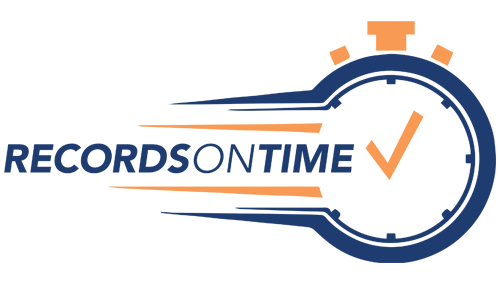What Medical Documentation Do You Need in a Personal Injury Case?

If you’re pursuing a personal injury case, you must provide medical documentation to support your claim. Medical documentation is crucial in proving the extent of your injuries and their impact on your life. Below, we’ll cover the medical documentation you must gather to support your personal injury case.
Types of Medical Documentation for a Personal Injury Case
Although there are several important documents that you will require for your personal injury case, medical documentation stands at the top of the list. However, many are confused as to what types of documents they need. Below are some of the most important medical documentation you need during a personal injury case.
Emergency Room and Doctor Reports
After an accident, it’s important to seek medical attention right away. This not only ensures that you receive the care you need, but it also creates a record of your injuries. Emergency room and doctor reports are crucial pieces of medical documentation that provide important information about your injuries, including the diagnosis, treatment plan, and recommended follow-up care.
These reports are typically created by the medical professionals who treated you and can go a long way in your personal injury case. These records will contain detailed information about your injuries, including the diagnosis, treatment plan, and prognosis. Your medical records will include the following:
- Hospital records: If you were hospitalized, you’d need to obtain copies of your hospital records, including information about your injuries, treatment, and any medications you were given.
- Doctor’s notes: Your doctor’s notes will provide a detailed account of your medical treatment, including your symptoms, diagnosis, and any recommended follow-up care.
- Test results: Any diagnostic tests you underwent, such as X-rays or MRIs, should be included in your medical records.
Bills and Treatment Records
Medical bills and treatment records are also important documentation in a personal injury case. These documents provide evidence of the costs associated with your medical treatment, such as hospital stays, surgeries, and follow-up appointments. This is the cost that you should be compensated for.
They may also include information about the type and dosage of medication you were prescribed and any medical equipment or supplies you needed during your recovery.
These bills and records may include the following:
- Surgery Costs
- Ambulance Fees
- Blood Work or Scans
- Doctor Appointments
- Physical Rehabilitation
- Prescription Medication
- Diagnostic Imaging
- Medical Supplies
- Healthcare Services
- Requests for Medical Records
Reports from Specialists
If you were referred to a specialist for your injuries, such as an orthopedic surgeon or neurologist, their reports could also be important medical documentation in your personal injury case. These reports provide detailed information about the nature and extent of your injuries and any recommended treatments or therapies. They may also provide insight into the long-term effects of your injuries and any ongoing care that may be needed.
Photos of Your Injuries
In addition to medical reports and bills, photos of your injuries can be powerful evidence in a personal injury case. These photos can show the severity and extent of your injuries and any visible scars or physical limitations resulting from the accident. It’s important to take photos as soon as possible after the accident, as injuries may heal and change over time. However, seek medical attention before you take pictures if the injury is serious.
Out-of-Pocket Expenses
Finally, keeping track of any out-of-pocket expenses related to your medical treatment is important. These expenses include transportation to and from appointments, parking fees, and over-the-counter medications or medical supplies. Keep receipts for these expenses to ensure you are properly reimbursed as part of your personal injury claim. Even though you might not be compensated for all of them, it is still essential to be thorough.
The Importance of Medical Documentation in Personal Injury Cases

Medical documentation is crucial in a personal injury case as it provides evidence of the extent of your injuries and their impact on your life. Below are some of the main reasons why.
Proving the Extent of Your Injuries
Medical documentation is essential in proving the extent of your injuries in a personal injury case. Medical records, doctor’s notes, and diagnostic test results provide a detailed account of your injuries and the treatment you received. This information is crucial in proving the severity of your injuries and their impact on your life.
Supporting Your Claim
Medical documentation supports your personal injury claim by providing concrete evidence of your injuries. This evidence can help prove that the negligence or wrongdoing of another party caused your injuries. Without medical documentation, it can be challenging to prove that your injuries result from the accident or incident that led to your personal injury case. Thus, they serve as a crucial piece of evidence on which your entire case depends.
Estimating the Value of Your Claim
Medical documentation is also essential in estimating the value of your personal injury claim. The extent of your injuries and their impact on your life will determine the compensation you’re entitled to. Without medical documentation, it can be challenging to accurately estimate the value of your claim.
Preparing for Trial
If your personal injury case goes to trial, medical documentation will be critical in supporting your case. Medical records and other documentation can be used as evidence in court to prove the extent of your injuries and their impact on your life. It can be challenging to prove your case in court without medical documentation.
Conclusion
In a personal injury case, medical documentation is crucial in proving the extent of your injuries. Gather and organize all relevant medical records, bills, invoices, work records, and expert opinions to build a strong case. If you’re unsure what medical documentation you’ll need for your specific case, consult a personal injury attorney who can guide you through the process.
Contact a reliable medical record retrieval company like Records on Time to help streamline the workings of your legal practice. We have 20-plus years of experience providing high-quality and affordable medical record retrieval services.
